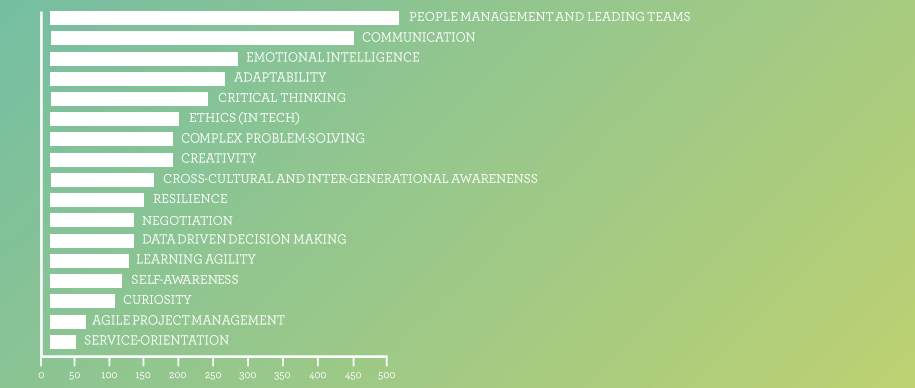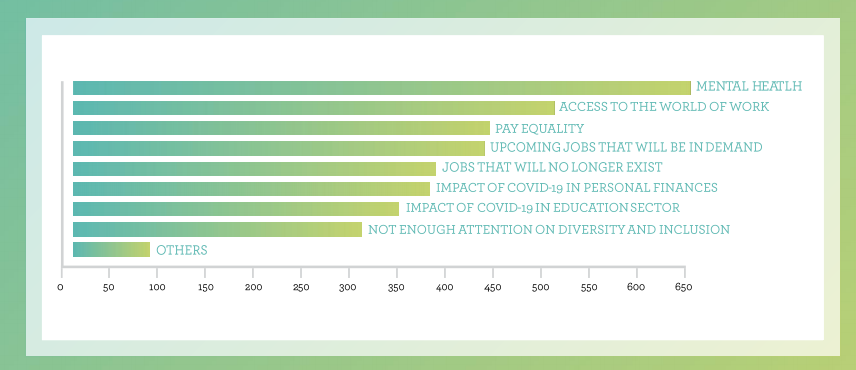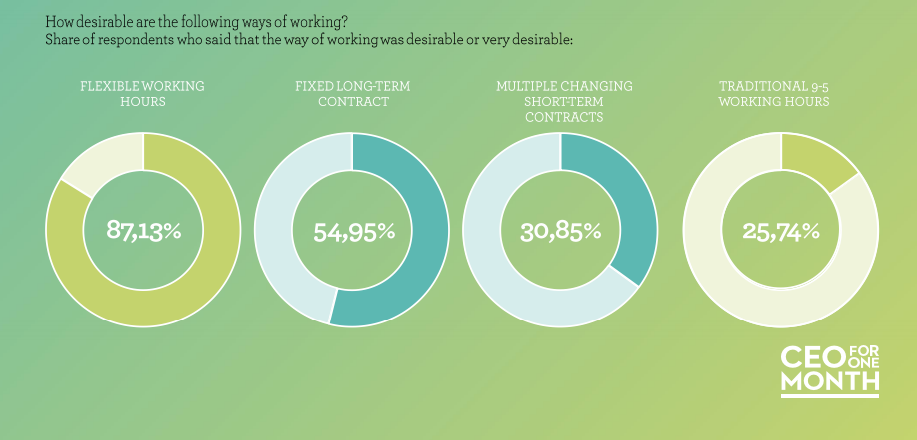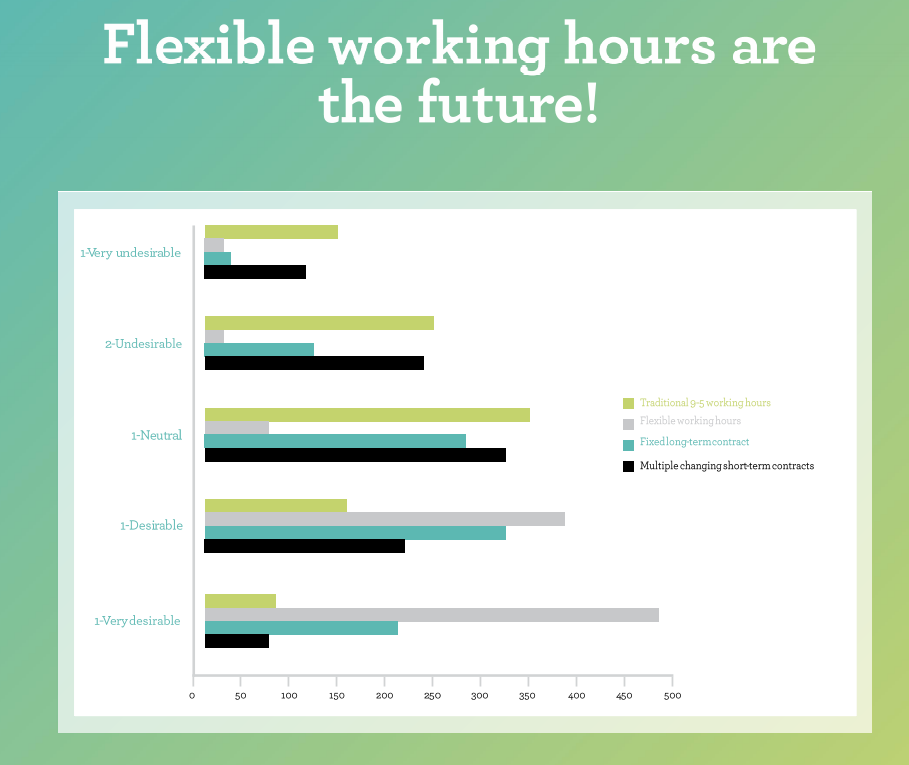The world of work is moving quickly to a turning point. With many shifting to a post-pandemic future, it’s clear the world of work has been permanently changed by Covid-19 and accelerating megatrends. From hybrid working solutions to degree requirements to mental health, it’s clear that the future of work will look vastly different than it has in the past.
Understanding the mindset of a new generation of talent is the best way to make exciting predictions about the future. In the Adecco Group Foundation’s survey, on behalf of the Adecco Group, we asked more than 1,000 future leaders from 64 different countries various questions about the future of work, from critical leadership skills to educational requirements to their views on managing remote and onsite teams. Of the respondents, 84% were between the ages of 18-30, 54% were women, 35% were in full-time education, and 15% were in full-time employment. All of the respondents were applicants to the Adecco Group’s CEO for One Month Programme.
What skills do future leaders and current leaders need to succeed in the future of work? Younger leaders are increasingly putting more emphasis and priority on deeply human traits and soft skills, especially when it comes to managing teams and overseeing challenges related to the future of work. What exactly are these soft skills? We can learn a lot by understanding how a younger generation of future leaders views the future of work. Here are the key insights about the future of work, according to young leaders:
1. Soft skills are far more important than hard skills
There’s no denying that the skill set requirements for future leaders keeps shifting. Seventy nine percent of respondents said soft skills would be far more important than hard skills for future CEOs and current CEOs. That number is up 10% from last year.
2. People management and team leadership is key for leaders
What soft skills will future leaders need the most? Young leaders ranked the importance of a number of soft skills. People management and team leadership is by far the most important soft skills for leaders, the same top soft skill from the 2019 survey. Communication remained the second most important soft skill, while emotional intelligence became the third most important soft skill.

3. Mental wellbeing is more important than ever
In light of the pandemic and subsequent lockdowns, mental health and wellbeing was the most important concern for the future of work for young leaders. Leaders need to make more of an effort to build hybrid working models that support individual employee needs, respondents said. Access to the world of work was another top concern in the future of work as well.

4. College degrees are becoming less crucial
Higher education offers valuable lifelong skills for many, but young leaders say it might not be crucial to every position and role in the future. It’s further evidence of a growing trend where leaders and managers across the globe are removing degree requirements for some jobs – and instead focusing on skills. In our survey, 54% of respondents still think CEOs would benefit from having a degree, a slight increase from 2019.
5. Flexible working is the future
The Covid-19 pandemic has changed the ways in which we work, for good. But that flexible working future is here to stay, young leaders overwhelmingly said. In our survey, 87% of young leaders said they wanted flexible working hours that allowed them to achieve a better work-life balance, while being able to rely on stable, long-term work arrangements with fixed-term contracts. It’s equally as important to young men as it is to young women.

6. Managers should be equipped to handle remote teams
How are current leaders equipped to face the challenges of the future of work? Sixty percent of respondents thought current leaders and CEOs are well-suited to handle and manage remote teams. It’s a sign that shows younger workers are optimistic about the ability of managers to adapt to leadership challenges. However, the next generation of leaders expects that managers will be even better equipped to manage both remote and onsite teams effectively.

What other trends did young leaders see in the future of work? What soft skills are critical for rising leaders? Download our Whitepaper, #CTheFuture 2.0, for a full breakdown of young leaders and their thoughts on the future of work and the future of leadership.
